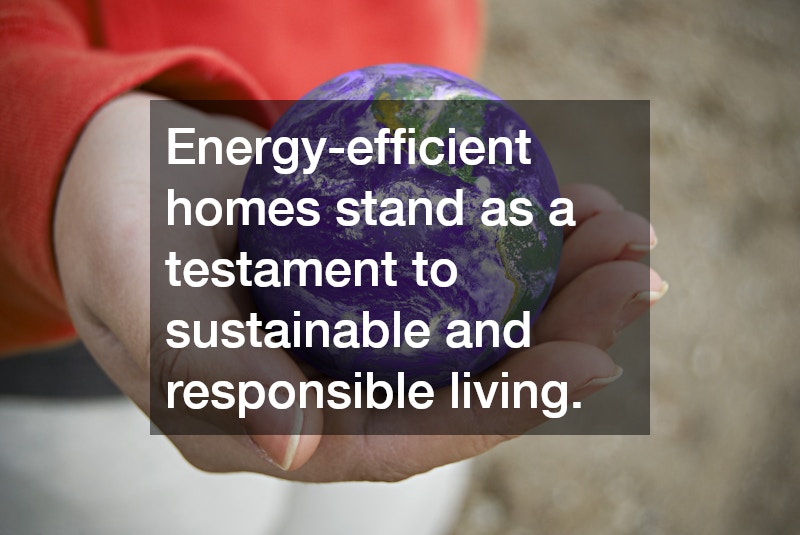As the global energy demand continues to rise, the need to conserve energy within our homes becomes crucial. Homeowners are increasingly seeking solutions to improve energy efficiency, particularly concerning heating, ventilation, and air conditioning systems (HVAC). HVAC companies play a vital role in identifying and addressing common home energy efficient issues, ensuring both environmental benefits and cost reductions.
Energy efficiency in homes does not only reduce energy bills but also contributes significantly towards reducing carbon footprints. This shift towards efficiency is not just a trend but a necessity for sustainable living.
Understanding the common issues and how they can be resolved gives homeowners a head start in optimizing their energy usage.
Improving the energy efficiency of HVAC systems is a primary strategy to tackle home energy consumption. According to the Environmental Protection Agency (EPA), HVAC systems account for roughly half of the energy use in a typical home. Therefore, identifying inefficiencies and making the necessary improvements can yield substantial benefits.
Poorly Insulated Ductwork Systems
One of the most prevalent issues affecting home energy efficiency is poorly insulated ductwork. Ducts that leak air into spaces where air conditioning is unnecessary contribute to significant energy losses. These inefficiencies cause the HVAC system to work harder, thus consuming more energy.
HVAC companies can address this issue by conducting thorough inspections and sealing any gaps or leaks in the ductwork. Insulating ducts can prevent warm air in the winter and cool air in the summer from escaping. Proper insulation ensures that the HVAC system operates efficiently, reducing both energy consumption and costs.
Improving ductwork insulation not only enhances energy efficiency but also improves indoor air quality. By ensuring that the conditioned air is delivered directly to its intended location without contamination, homeowners can breathe cleaner air. Over time, these improvements can notably decrease utility bills while increasing comfort levels within the home.
Inadequately Maintained HVAC Systems
Routine maintenance of HVAC systems is often overlooked, leading to decreased energy efficiency. Regular servicing is essential to ensure that HVAC systems operate at their optimal capacity. Without maintenance, units can run inefficiently, resulting in increased energy consumption and higher utility bills.
HVAC companies recommend annual maintenance checks to identify and rectify potential issues before they escalate. Simple tasks such as cleaning or replacing filters can dramatically improve system efficiency. Well-maintained systems not only last longer but also perform more effectively, offering homeowners peace of mind.
Ultimately, consistent HVAC maintenance saves money in the long term by preventing costly repairs and ensuring energy-efficient operations. Furthermore, it allows for early detection of energy-hogging problems, ensuring that homes remain both comfortable and environmentally friendly. As a proactive measure, homeowners are encouraged to schedule regular check-ups and system tune-ups.
Incorrectly Sized HVAC Systems
Another common home energy efficient issue is having an incorrectly sized HVAC system. A system that’s too large or too small for a home can lead to inefficient energy use and uneven temperature distribution. Both conditions can result in higher energy bills and unsatisfactory indoor comfort levels.
HVAC companies are equipped to conduct accurate load calculations to determine the appropriate system size for a specific home. This process involves evaluating factors such as square footage, climate, and home insulation. By installing the correctly sized system, homeowners can ensure optimal energy efficiency and maximize comfort.
Implementing the right size of the HVAC system not only enhances energy efficiency but also prevents excessive wear and tear on the unit. Consequently, this reduces the frequency of repairs and extends the lifespan of the equipment. A properly sized system is a cost-effective solution that balances energy use with performance, benefiting both the homeowner and the environment.
Addressing common home energy efficient issues within HVAC systems is instrumental in reducing energy consumption and optimizing home comfort. By tackling problems such as poorly insulated ductwork, inadequate maintenance, and incorrectly sized systems, HVAC companies play a crucial role in enhancing home energy efficiency. Homeowners can achieve a balance between reducing energy costs and improving their environmental footprint through these interventions.
The collaboration between homeowners and HVAC companies in addressing these common issues can lead to significant improvements in energy efficiency. Recognizing the symptoms of inefficiencies and implementing targeted solutions prepares homes better for the future. Energy-efficient homes stand as a testament to sustainable and responsible living in the modern world.
.

